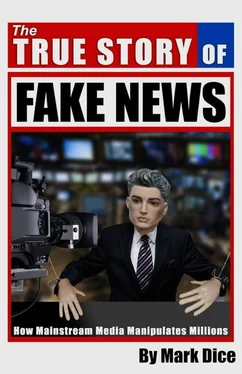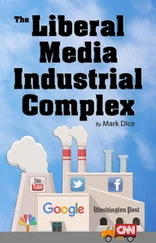The Washington Post didn’t even mention what these “expert’s” credentials were, they just claimed this unknown “group” were the “experts” who “discovered” a Russian propaganda campaign was being amplified by a list of websites and YouTube channels they had compiled. This story, with the headline “Russian propaganda effort helped spread ‘fake news’ during election, experts say” dumped gallons of gasoline on a small little fire, which then exploded into the “fake news” phenomena.
Other news outlets quickly denounced The Post’s story and their newfound supposed “experts” PropOrNot as McCarthyism. 48Even Rolling Stone , which had previously hyped up concerns about fake news, called their story “shameful and disgusting.” 49
After the backlash kept growing, The Washington Post issued a retraction and posted an editor’s note on the original story, reading: “ The Washington Post on Nov. 24 published a story on the work of four sets of researchers who have examined what they say are Russian propaganda efforts to undermine American democracy and interests. One of them was PropOrNot, a group that insists on public anonymity, which issued a report identifying more than 200 websites that, in its view, wittingly or unwittingly published or echoed Russian propaganda. A number of those sites have objected to being included on PropOrNot’s list, and some of the sites, as well as others not on the list, have publicly challenged the group’s methodology and conclusions. The Post , which did not name any of the sites, does not itself vouch for the validity of PropOrNot’s findings regarding any individual media outlet, nor did the article purport to do so. Since publication of The Post’s story, PropOrNot has removed some sites from its list.” 50
One site listed as a publisher of ‘Russian propaganda’ was Naked Capitalism, a finance and economic blog started in 2006, which threatened to sue The Washington Post for defamation if they didn’t issue a retraction and an apology. Their lawyer sent a letter to the paper, which said in part, “You did not provide even a single example of ‘fake news’ allegedly distributed or promoted by Naked Capitalism or indeed any of the 200 sites on the PropOrNot blacklist. You provided no discussion or assessment of the credentials or backgrounds of these so-called ‘researchers’ (Clint Watts, Andrew Weisburd, and J.M. Berger and the ‘team’ at PropOrNot), and no discussion or analysis of the methodology, protocol or algorithms such ‘researchers’ may or may not have followed.” 51
The Washington Post’s article even listed my friend Gary Franchi’s YouTube channel, The Next News Network, as one of the outlets “spreading Russian propaganda.” It turns out someone from PropOrNot sent an email to The New Yorker hoping to have them report on their allegations before The Washington Post did. Adrian Chen at The New Yorker would later write, “Reporting on Internet phenomena, one learns to be wary of anonymous collectives freely offering the fruits of their research. I told PropOrNot that I was probably too busy to write a story, but I asked to see the report. In reply, PropOrNot asked me to put the group in touch with ‘folks at the NY Times, WaPo, WSJ, and anyone else who you think would be interested.’ Deep in the middle of another project, I never followed up.” 52
He said PropOrNot’s report on which sites were “Russian Propaganda” was “a mess.” Chen later interviewed Eliot Higgens, a researcher who has investigated Russian fake news stories for years, who told him, “To be honest, it looks like a pretty amateur attempt. I think it should have never been an article on any news site of any note.” 53Chen went on to say that, “To PropOrNot, simply exhibiting a pattern of beliefs outside the political mainstream is enough to risk being labeled a Russian propagandist.”
The Intercept , an online outlet run by Glenn Greenwald who broke the story about Edward Snowden a few years earlier, slammed PropOrNot, saying, “the individuals behind this newly created group are publicly branding journalists and news outlets as tools of Russian propaganda◦— even calling on the FBI to investigate them for espionage◦— while cowardly hiding their own identities. The group promoted by the Post thus embodies the toxic essence of Joseph McCarthy, but without the courage to attach individual names to the blacklist.” 54
Studies of Fake News Effects on Election
With this sudden concern about fake news ‘affecting our election,’ studies were conducted which actually proved fake news didn’t swing the election or have any measurable effect on how people voted. New York University and Stanford reported that only eight percent of people were actually duped by fake news. 55Of those eight percent who supposedly believed some fake news articles were real, it’s highly unlikely those stories actually swayed their opinions at all about a candidate, and instead only reflected what they already believed. Columbia Journal Review conducted a study and found, “The fake news audience is real, but it’s also really small.” 56
They also pointed out that, “the fake news audience does not exist in a filter bubble. Visitors to fake news sites visited real news sites just as often as visitors to real news sites visited other real news sites. In fact, sometimes fake news audiences visited real news sites more often.” 57They even asked, “Is fake news a fake problem?” and concluded their report saying that their findings, “call into question the scope of the fake news problem.” 58
Most voters got their news from TV and actual news websites, not from random stories posted on unknown websites. “Our data suggest that social media were not the most important source of election news and even the most widely circulated news stories were seen by only a small fraction of Americans,” the researchers said. 59
Even Facebook CEO Mark Zuckerberg admitted, “To think it influenced the election in any way is a pretty crazy idea.” 60He surprisingly confirmed what rational people understood◦— that Hillary supporters underestimated the amount of support for Donald Trump. “I do think there is a certain profound lack of empathy in asserting that the only reason someone could have voted the way they did is they saw some fake news. If you believe that, then I don’t think you have internalized the message the Trump supporters are trying to send in this election,” Zuckerberg said. 61
Facebook’s chief operating officer Sheryl Sandberg agreed. When she was asked if ‘fake news’ played a big role in the election, she answered, “Well, there have been claims that it swayed the election, and we don’t think it swayed the election, but we take those claims seriously.” 62
Even MSNBC’s Joe Scarborough, a RINO Republican who hates Donald Trump, admitted, “When you look at this ‘fake news,’ and you see what happened up at Harvard and you hear everybody writing articles saying millennials cost Hillary Clinton the election, and dogs with three legs cost Hillary Clinton the election, and comets passing in the night◦— Hillary Clinton cost Hillary Clinton the election. Hillary Clinton’s campaign staff cost Hillary Clinton the election.” 63
He continued, “Listen, if you care about Democrats digging out of the hole that they have put themselves in now, you’ve got to ask yourself◦— what have Democrats done to so offend Americans that they only have 11 governorships, they’ve lost control of the Senate, they’ve lost control of the House, they lost 900 legislative seats over the past six years.” He concluded, “It wasn’t fake news. It was something much, much bigger.” 64
Читать дальше












